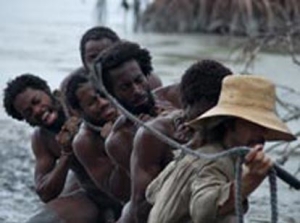It is time to rescue film
Film has the potential to be a most beautiful art, but it has been debased by US cinema, and by television
Ken Loach
guardian.co.uk, Friday 15 October 2010 19.00 BST
Film is an extraordinary medium. Like theatre, it has all the elements of drama. It has character, plot, conflict, resolution. You can compare it to the visual arts, to painting, to drawing; it can document reality, like still photographs. It can explain and record like journalism, and it can be a polemic, like a pamphlet. It can be prosaic and poetic, it can be tragic and comic, it can be escapist and committed, surreal and realist. It can do all these things.
So, how have we protected and nurtured and developed this great, exciting, complex medium? How have we looked after it, and does it fulfil its potential?
Over a seven-year period, the US market share of box-office takings in British cinemas was between 63% and 80%. The UK share, which was mainly for American co-productions, was between 15% and 30%; films from Europe and the rest of the world took only 2% to 3%. So for most people it’s almost impossible to have a choice of films; you get what you’re given. As for television, only 3.3% of the films shown on TV are from European and world cinema.
Just imagine, if you went into the library and the bookshelves were stacked with 63% to 80% American fiction, 15% to 30% half-American, half-British fiction, and then all the other writers in the whole world just 3%. Imagine that in the art galleries, in terms of pictures; imagine it in the theatres. You can’t, it is inconceivable – and yet this is what we do to the cinema, which we think is a most beautiful art.
How can we change this? We could start by treating cinemas like we treat theatres. They could be owned, as they are in many cases, by the municipalities, and programmed by people who care about films – the London Film Festival, for example, is full of people who care about films.
And we could decide to tackle television, which has become the enemy of creativity. Here, drama is produced beneath a pyramid of producers, executive producers, commissioning editors, heads of department, assistant heads of department, and so on, that sits on top of the group of people doing the work and stifles the life out of them.
Connection between the writer and the director is not approved of. Scripts are approved just before shooting, even after shooting has started. Discussions at the commissioning stage are always about other television programmes, not the primary source, not what are we making the film about.
When you get into the cutting room the same thing happens. First assemblies, when the shots are put together, go out to executives who then send notes. There’s a director’s version, immediately sacrificed when the producer comes in; then the producer’s version is discussed with the executive producer. And then that is changed, and then the commissioning editor comes in, and so on and so on.
I’m pleased to see that one or two top-ranking BBC people are going to lose their jobs. About time. It takes £1m to get them out of the door, but nevertheless they’re on their way. Maybe a few more will join them. Now let’s start cutting further down.
To think that our television is in the hands of these time-servers is nothing less than a tragedy. Because television began with such high hopes, it was going to be the National Theatre of the air. It was going to really be a place where society could have a national discourse and they’ve reduced it to a grotesque reality game. This should not be used to denigrate the idea of public service broadcasting. The commercial sector is probably worse.
What we want, and what writers need to write, are original stories, original characters, plot, conflict, things that dig into our current experience. Things that really show us how we’re living, give us a perspective on what is happening. That’s what television could do, that’s what they have betrayed.
Ratings are the prime consideration. Investigative journalism, where is it? Where’s World in Action? One director told me that he was asked to make a film about debt; they were going to do a series about debt and getting into debt. But the requirement was that there were to be no poor people, because obviously poor people are a bit depressing and they don’t sell the adverts.
Those of us who work in television and film have a role to be critical, to be challenging, to be rude, to be disturbing, not to be part of the establishment. We need to keep our independence. We need to be mischievous. We need to be challenging. We shouldn’t take no for an answer. If we aren’t there as the court jester or as the people with the questions they don’t want asked who will be?
Let’s finally start to realise the potential of this extraordinary medium that we call film.
guardian.co.uk © Guardian News and Media Limited 2010

